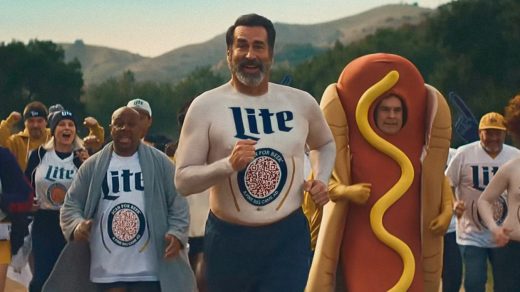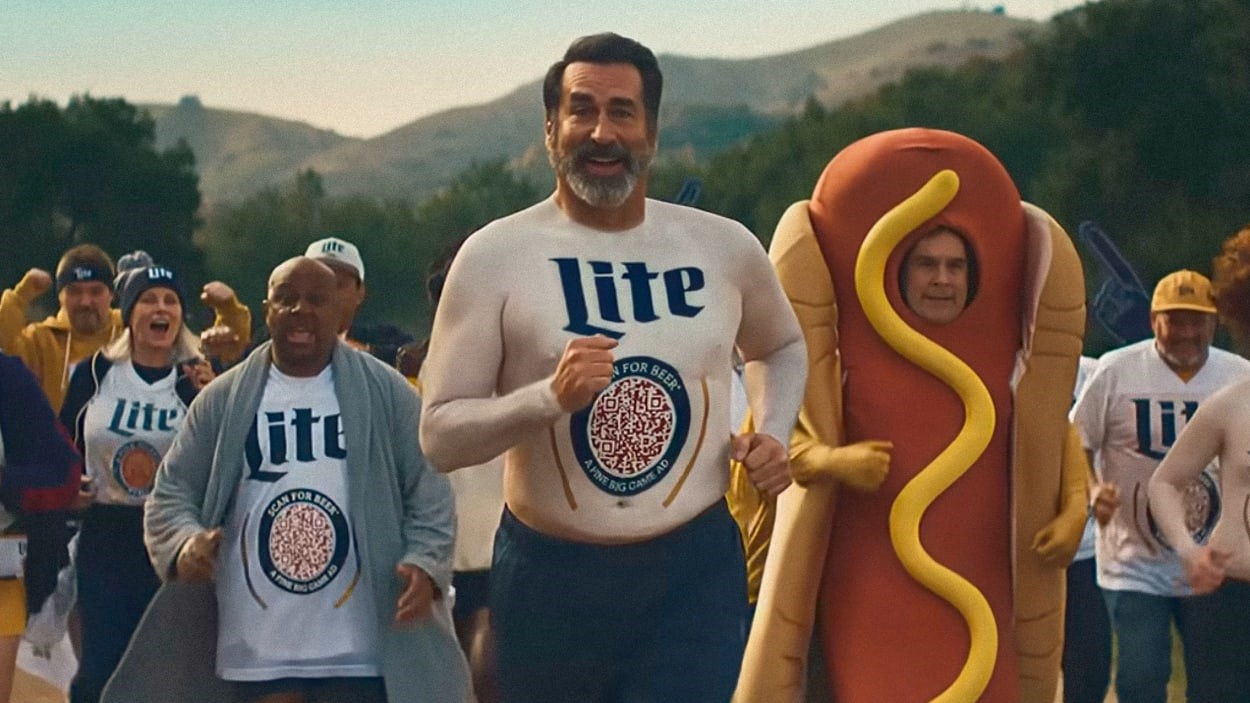Why the Super Bowl is entering its quantum advertising period
By Jeff Beer
The Super Bowl has become such a cultural spectacle that now even the advertising for the Super Bowl regularly references the Super Bowl. In fact, some ads use the spectacle, the massive budgets, the pressure, the audience, as central to their entire concept.
And perhaps no 2024 effort (so far) has summed it up as succinctly as BMW.
“What’s a teaser?”
“It’s an ad for an ad.”
We are all Christopher Walken. Yet, my curiosity is piqued as to what comes next.
BMW of North America CMO Marcus Casey says that releasing teasers for Super Bowl ads in the lead-up to the Big Game has become as important as the ads themselves running during the game. “Teasers allow us to extend the life of our campaign and build hype, momentum, and buzz,” says Casey. “But it’s almost absurd, if you think about it, which makes Christopher Walken’s mock-confusion that much funnier. Why would we do that? More buzz, of course!”
Uber Eats took a similar tack by not only getting David and Victoria Beckham to recreate their viral moment from the Netflix doc, Beckham, but having them joke about the entire idea of being in a Super Bowl ad. “We’ve found this tactic to be a particularly effective creative device during Super Bowl season when consumers are paying the closest attention to commercials,” says Georgie Jeffreys, head of marketing at Uber North America.
Simply referencing the ridiculousness of the ad-stravaganza that coincides with the NFL title game has itself become a familiar enough trope that brands and advertisers are continually pushing the envelope further, trying to find new ways to tap into the unique opportunity that such a collective experience provides. In 2018, Tide not only had a clever concept, but combined it with multiple placements throughout the game to create one of the most inventive Big Game campaigns ever.
Last year, FanDuel took it another step forward with “Kick of Destiny,” a live ad broadcast during the game in which Rob Gronkowski attempted to kick a field goal. In a concept that could be an annual event, the brand brought it back again this year for “Kick of Destiny 2.”
Two of the more experimental Super Bowl campaigns so far this year are from Miller Lite and DoorDash. The former is eschewing an official Big Game ad by handing out QR-coded T-shirts to fans to wear that others can scan for free beer money. Meanwhile, DoorDash is taking its ongoing tagline—that you can DoorDash just about anything—and offering fans a chance to win every single product advertised during the game, naturally delivered to the winner via DoorDash.
Ann Legan, global vice president of marketing for the Miller Family of Brands, says that they considered what’s expected from Super Bowl ads, what most brands end up doing, and how Miller Lite could show up in a way that does the opposite of all that, while still giving people what they want. “Our goal was to take the whole idea of a Big Game ad and do the reverse, from the screen to the streets, from selling you something to giving you something,” says Legan.
DoorDash is working with agency Wieden+Kennedy on a concept that has a lot of moving parts. In order to work, the delivery brand needed to coordinate agreements with every single Super Bowl advertiser. The goal is to use what is considered one of the biggest moments to tell people about your brand, and instead show people what the brand is all about. Instead of just telling us it can deliver almost anything, going ahead and delivering just about everything. At the same time, this concept also features a rising-tide-floats-all-boats element, promoting not just DoorDash but every other brand. A source close to the campaign calls it “quantum advertising,” many ads for many brands happening at the same time. Schrodinger’s cat goes to the Super Bowl.
The trajectory of all this points to more brands using the Super Bowl not only as a comedic platform to humanize their companies, but as a vehicle to get people involved in some way. Betting on a Gronk field goal. Wearing a Miller Lite QR code. Signing up for DoorDash to “DoorDash” everything else advertised during the game. All in an effort to combine a more personal experience with the overall spectacle.
“Consumers are smarter than ever before, they know when we are trying to sell them something,” says Miller’s Legan. “So when you approach advertising with that knowledge and offer up transparency to the audience, they appreciate it. It lets you as an advertiser be in on the joke instead of being the joke. Our acknowledgment of this moment, and what fans ultimately want from it, allows us to better relate to them and builds trust with our fans. We see you. We get you. We know what you want. And what you really want from Miller Lite: beer money.”
(19)



